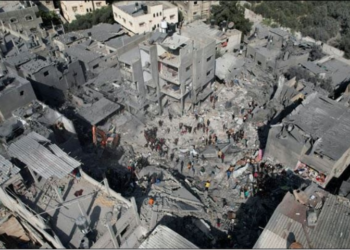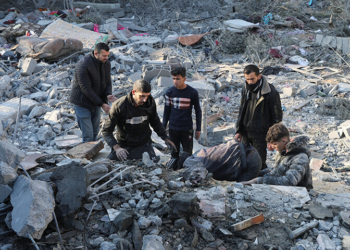Moscow, December 9, 2024: Syrian President Bashar al-Assad and his family have reportedly arrived in Moscow and been granted asylum by Russian authorities following his ouster. Russian news agencies, citing a Kremlin source, confirmed Assad’s arrival on humanitarian grounds.
“President Assad of Syria has arrived in Moscow. Russia has granted him and his family asylum on humanitarian grounds,” an unnamed source told a Russian news agency.
This confirmation follows widespread online speculation about Assad’s fate. Earlier reports, fueled by Flightradar data, suggested his plane had mysteriously disappeared from radar after an unexpected U-turn, sparking rumors of a potential crash.
On Sunday, Syrian rebels announced on state television that they had ousted Assad, bringing an end to a 50-year family dynasty. This swift and decisive move has plunged Syria into uncertainty, raising concerns about a new wave of instability in the war-torn Middle East.
A Syrian military officer, speaking to Reuters, revealed that army command had informed officers of the regime’s collapse. However, the army later issued a statement asserting ongoing operations against “terrorist groups” in key regions, including Hama, Homs, and the Deraa countryside.
According to senior army officers, Assad left Damascus for an undisclosed location earlier on Sunday as rebel forces entered the capital without encountering significant resistance. The rebels celebrated their victory by announcing the liberation of prisoners from Sednaya prison, a notorious military facility on the outskirts of Damascus where thousands were held during Assad’s rule.
“We celebrate with the Syrian people the freeing of our prisoners, the breaking of their chains, and the end of the era of injustice,” rebel leaders declared.
Eyewitnesses reported thousands of people gathering in Damascus’s main square, waving flags and chanting “Freedom” to mark the end of five decades of Assad family rule. The jubilant crowd, some on foot and others in vehicles, reflected the magnitude of the historic moment.
The sudden fall of the Assad regime has sent shockwaves through the Middle East, a region already engulfed in conflicts. While Russia’s decision to grant Assad asylum signals its continued support for the deposed leader, the broader implications for Syria’s stability and the balance of power in the region remain uncertain.
As the situation unfolds, the world watches closely to see how Syria navigates its transition and what role international actors will play in shaping its future.









